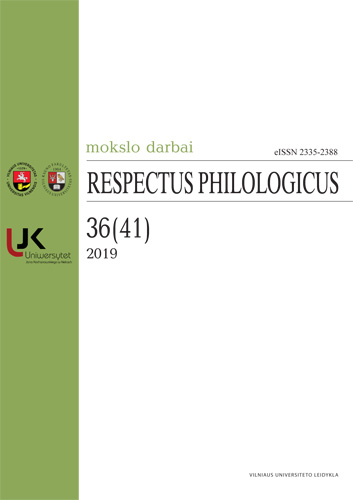Means of Expression of Epistemic Modality in Russian Political Discourse
Means of Expression of Epistemic Modality in Russian Political Discourse
Author(s): Živilė NemickienėSubject(s): Applied Linguistics, Epistemology, Politics and communication, Evaluation research
Published by: Vilniaus Universiteto Leidykla
Keywords: epistemic modality; Russian political discourse; modal adverbs; modal verbs; mental state predicates;
Summary/Abstract: This paper discusses the means of epistemic modality used in Russian political discourse. Russian political leaders most often use epistemic modal adverbs and mental state predicates in their speeches for hedging purposes. Modal particles and modal expressions are employed more often than predicatively used adjectives, modal auxiliaries are never used due to the peculiarities of the Russian language. Most commonly used words expressing epistemic modality in Russian belong to the group of modal adverbs. Due to the structure of Russian, groups of particles and modal expressions conveying epistemic modality are analysed. The study reveals that Russian politicians use words with epistemic meanings mainly to convince the listener that the information is reliable, and rarely to mitigate the content of the proposition or to reduce the author’s responsibility for what is being claimed. The cognitive processes help to recognize the ideas encoded in epistemic utterances. Those processes are based on the shared knowledge and understanding of the context.
Journal: Respectus Philologicus
- Issue Year: 2019
- Issue No: 36(41)
- Page Range: 19-31
- Page Count: 13
- Language: English

